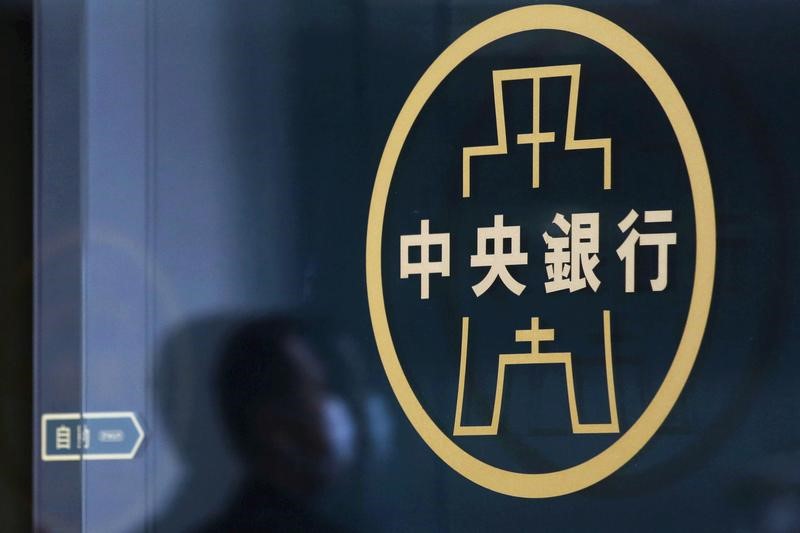(Bloomberg) -- Taiwan may have avoided going into coronavirus lockdown, but the central bank is likely to cut its benchmark rate for a second time this year as shrinking domestic consumption and Asia’s strongest currency weigh on policy makers’ minds.
Taiwan’s monetary authority will cut its key lending rate to a record low of 1% at a board meeting on Thursday, according to the median estimate of 34 economists surveyed by Bloomberg. This comes after the central bank lowered borrowing costs further than forecast to 1.125% in March after keeping them unchanged for almost four years.
Taiwan’s economy has been relatively sheltered from the effects of the coronavirus outbreak, helped by comparatively strong exports and quick action to keep the epidemic under control. However the global recession and the growing strength of the Taiwan dollar may push the central bank to cut rates again.
The strength of the Taiwan dollar will be one of the main concerns for the board, according to Yuanta Securities Invest Consulting chief economist Woods Chen, who predicts a 12.5 basis-point cut.
“The main rates for many of the world’s major economies are close to zero, meaning the Taiwan dollar is a high-interest rate currency,” he said. “Cutting the rate will at least reduce the incentive to speculate.”
Taiwan Central Bank Seen Reining in Currency at Two-Year High
In the past week, the central bank has repeatedly intervened in the currency market, according to traders, signaling its unease with the currency’s Asia-beating gain this year. It has been repeatedly active in the foreign exchange market in the last hour of trading since last Thursday as the Taiwan dollar closed in on a two-year high, according to currency traders in Taipei.
Angela Hsieh, an economist at Barclays (LON:BARC) Bank Plc in Singapore, expects the central bank to cut its rate to 1% to avoid too much of a gap with other major Asian economies. She points to comments from central bank Governor Yang Chin-long calling for coordination of monetary and financial policies to have the greatest stimulatory impact. Hsieh views a rate cut in combination with the government’s plans for distributing vouchers to the public in July to stimulate consumption as the most effective way to shore up the economy.
Despite the fact that there was no lockdown and businesses and schools stayed open throughout the pandemic, private consumption may drop in this quarter after contracting in the first quarter, according to Hsieh. Unemployment has risen to 4.1%, its highest level in more than six years.
Worst Over?
Still, excessively high borrowing costs don’t appear to be the main problem constraining economic activity. Following its rate cut in March, the central bank also lowered the rates on its main policy tool -- short-term certificates of deposit it sells to commercial banks to regulate liquidity in the market. With the rate on the shortest 7-day notes currently at 0.11%, 15 of the 34 economists surveyed by Bloomberg believe the central bank will keep the benchmark rate unchanged.
Having dodged the worst of the economic impact of the coronavirus and with liquidity still ample, Taiwan will likely wait to see if the global slump worsens before it cuts rates again, Australia & New Zealand Banking Group Ltd. Economist Bansi Madhavani wrote in a report last week.
©2020 Bloomberg L.P.
